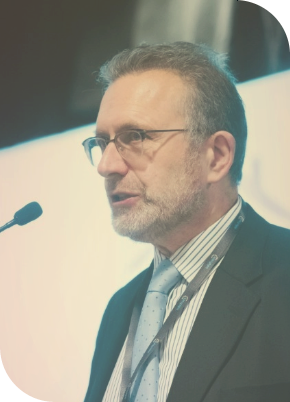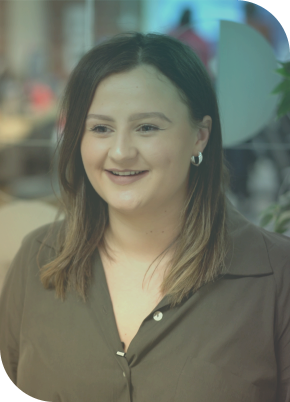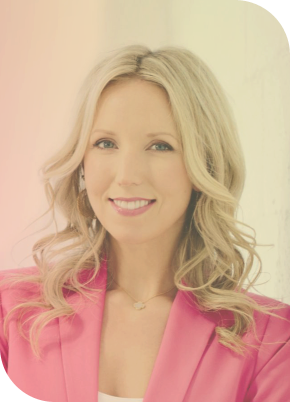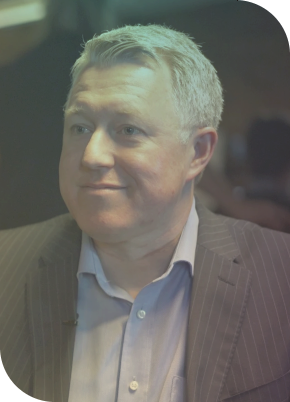Software development for the next generation of world-changing startups
Product development for early stage startups isn’t a one off build. It’s a journey; of launches,
learning and improvement. A measured approach is required, backed by experience.
Product development services
matched to your startup stage
Proof of concept
Proving (or disproving) the feasibility of a concept and gathering evidence to remove assumptions. We use no/low code solutions to keep costs down and learnings fast.
- Product discovery
- UX & UI wireframes
- Product proofs
- Rapid prototyping
Minimum viable product
Testing the key product features and functionality with an initial version of your product to satisfy early adopters. Data is gathered and analysed, and improvements and additions are made.
- Lean & Agile development
- Usability testing
- Multiple iterations
- Product roadmap

High fidelity product
With an established design and feature set we transition to enterprise-grade solutions, creating bespoke features and functionality to serve a growing user base.
- Complex software solutions
- Ready to scale product
- Performance improvements
- Scale & Exit planning
Transforming big ideas into big businesses
We employ over 100 people who are experts in the latest software, technical languages and capabilities. We’re here so you don’t have to worry about that.
We know all of the challenges that founders face – and make sure your tech stack isn’t one of them.
Expect high performing scalable tech, and jargon free, human communication.
Align & Explore
We begin by connecting you to a senior tech lead and product owner to understand what stage you’re at, your business strategy, the challenges you’re trying to solve and what we believe are the riskiest assumptions. We gather requirements, prioritise and align where to start in the leanest way possible.
We work with you to define your products core business logic, talking through the different routes available and sharing advice on the best way to proceed. We’ll set initial development goals and estimate a project timeline. We do this with flexibility built in. We know startups, we know things change – as they should in the early stages of product development.
Build & Launch
We engage your team and prototype the MVP, ruthlessly cutting unnecessary features and functionality. Overspec’d launch products can kill startups before they’ve even begun – we won’t let that happen.
Together we’ll create a basic version of the product. With the minimum features required to test the idea, impress real users and gather feedback.
We encourage small-scale ‘beta’ launches, just enough people to validate learnings and prove, or disprove, our assumptions.
Tracking, testing and smooth product deployments are all part of the service. We’ve taken great pains to build an exceptional product team so you don’t have to.
Learn & Improve
Work doesn’t stop once your product has been deployed. In fact, it’s just starting — we’re now gathering valuable data and insight from product interactions.
The learnings are good news, but they’ll always involve change. Copy, colours, button positions might need to change, we’re used to that, entire concepts and functionality might need to change, we’re used to that too.
It’s a process of iterative development and improvements. We continually identify, prioritise and build improvements and functionality that deliver value to your early users.
Once your concept is validated, then and only then, do we move onto custom software development and creating high fidelity products.
Scale & Exit
We’ve got our head around what customers want, have a defined product roadmap and things are running as smoothly as a fast growing startup can. Upgrades to tech stack, UX/UI and data processing are par for the course here.
We’ll also support as you begin hiring, transitioning the product and team to your own. You may also sell, and will be fielding questions from potential investors, buyers and tech leads. That would be cool, and we can support that too.
You’re in control throughout but it’s nice to have someone like us, whose been there and done it before, at your side.
Proven track record of
80+ startups
Product Types Apple & Android Apps / Web Apps / Social Networks / Consumer Marketplace / Data & Analytics / Ecommerce / Artificial Intelligence / Wearable & IoT Integration
Industries Health & Wellness / Fashion / Education / Finance / Smart Cities / Housing / Furniture & Homewares / Recruitment / Hospitality / Publishing / Retail
FAQs
How much does a typical Startup MVP cost?
Whilst there are a ton of variables that go into calculating the cost of a project, generally it’s dependent on how complex (and time consuming) the project is. We’re specialists in lean startup methodologies that prioritise getting products to market quickly with minimum risk. We will advise and recommend tools, software and packages to keep things as cost effective as possible.
Over 90% of our initial build relationships develop into ongoing development partnerships. We work closely with our clients and prospective clients to understand their unique needs and develop custom solutions that fit their budget. We offer flexible pricing models and a transparent development process that ensures you always know what you’re paying for. If you’re interested in learning more please contact us to organise a free call to discuss your requirements, talk ballpark budgets and understand if we’re a good fit.
What if my startup fails or needs to pause?
Sadly sometimes this does happen and whilst we all collectively work to ensure your business’s success, startup failure is a possibility that we are prepared for.
We have experience dealing with these situations and structure our working terms and practices to best protect the interests of the founders, any external investors and ourselves.
When there’s a need to pause or permanently stop development temporarily our approach will depend on the stage of the project. If the project is still in progress, we will work with you to assess the situation and determine the best course of action. This may involve partial completion with limited features and functionality, transferring ownership of the code to you or another party or storing the code for future use.
If the project was completed and launched, but did not succeed, you will still own the intellectual property of the software we developed for you. You will be free to use or modify the code as you see fit and we can assist with any of the transferals or wrapping up process such as removing it from domains, app stores and the cancellation of any third party subscriptions.
Who owns the product IP?
Contractually the person paying for the services we provide owns the IP of what we’re building. Our standard operating contract covers commercial terms, delivery specifications, service level agreements and ownership of intellectual property. All of this is explained and run through with you before we sign any contracts and begin work.
If it is an area of particular concern for your project we recommend speaking to an IP legal specialist to ensure your requirements are met by our standard operating terms, or for them to draft any bespoke detail that falls outside of it.
What people and skills will be in my development team?
We choose project teams based on the specific needs and requirements of each project. We have an extensive and experienced pool of development teams that comprise software engineers/developers, designers, product managers and quality assurance engineers.
Product managers – oversee the development process and ensure that the project is delivered on time, within budget and to specification. They will serve as your primary point of contact throughout the development process, and will keep you updated on progress and any changes to the project timeline or requirements.
Lead developer – manages the development team (the ones who write the code) and ensure that the code produced is of high quality and meets industry standards. They work closely with our product managers to overcome any problems, implement learnings and changes to the product roadmap and ensure that the development process is efficient and effective.
Supporting Developer(s) – your development team will include people with expertise in the specific programming languages and technologies required for your project. This may include developers with experience in front and back-end technologies such as React Native, HTML, CSS, JavaScript, Python, Ruby and Java.
Quality Assurance – ensure that the software being developed meets the required quality standards, functional requirements and specifications. They will create and execute test plans that identify and report any defects or issues in the software before it is released to the end users.
Designer – Creates the visual design and user experience of the software being developed. Creating a user interface that is intuitive, aesthetically pleasing, accessible and easy to use. This involves creating wireframes and prototypes, layout, color schemes, typography, and iconography. And can also include the creation of branding / brand guidelines where required.
In addition to these roles we also have a strong network of trusted startup suppliers outside of this that are happy to make introductions to
How long does it take to build an MVP?
The time it takes to build a minimum viable product (MVP) will vary depending on the complexity of the product, the number of features included, and the development approach used. Typically, an MVP can take us anywhere from a few weeks to several months to develop.
We work with our clients to understand their business goals and product requirements in order to provide an accurate estimate of the time it will take to develop their MVP. We typically follow an agile development approach, which involves breaking down the development process into small, manageable chunks and continuously delivering functional software to our clients.
During the initial discovery phase, we work with our clients to define the scope and requirements of their MVP. Once we have a clear understanding of the requirements, we can provide a more accurate estimate of the development timeline. We also work closely with our clients throughout the development process to ensure that the project stays on track and any changes to the requirements are handled in an agile and efficient manner.We recommend contacting us to discuss your project and get a more accurate estimate of the development timeline.
How do you communicate with clients during the development process?
We know that clear and frequent communication is essential to a successful software development project. We use a variety of communication channels to keep our clients informed, engaged and involved throughout the process.
Our preferred methods of communication include;
Regular video calls – these allow us to discuss project updates, address any questions or concerns, and make sure that everyone is aligned on the project goals and requirements. We typically schedule these calls on a weekly basis, depending on the needs of the client. We also hold daily team standup meetings for each project, you are encouraged to attend these when your input is needed.
Internal project management tools – such as Jira and Trello to track progress and communicate updates. These tools allow you to view project timelines, monitor progress, and provide feedback on specific tasks or features.
Email and instant messaging – For quick questions and updates we use google chat, email and slack. You have a dedicated team and your product manager will be your main point of contact throughout the process.
We encourage our clients to be active participants in the project and understand that strong collaboration and communication are key to avoiding hold-ups and ensuring alignment on decision making.
If you have any specific communication preferences or requirements, please let us know and we will work with you to ensure that we are communicating in a way that works best for your business.








